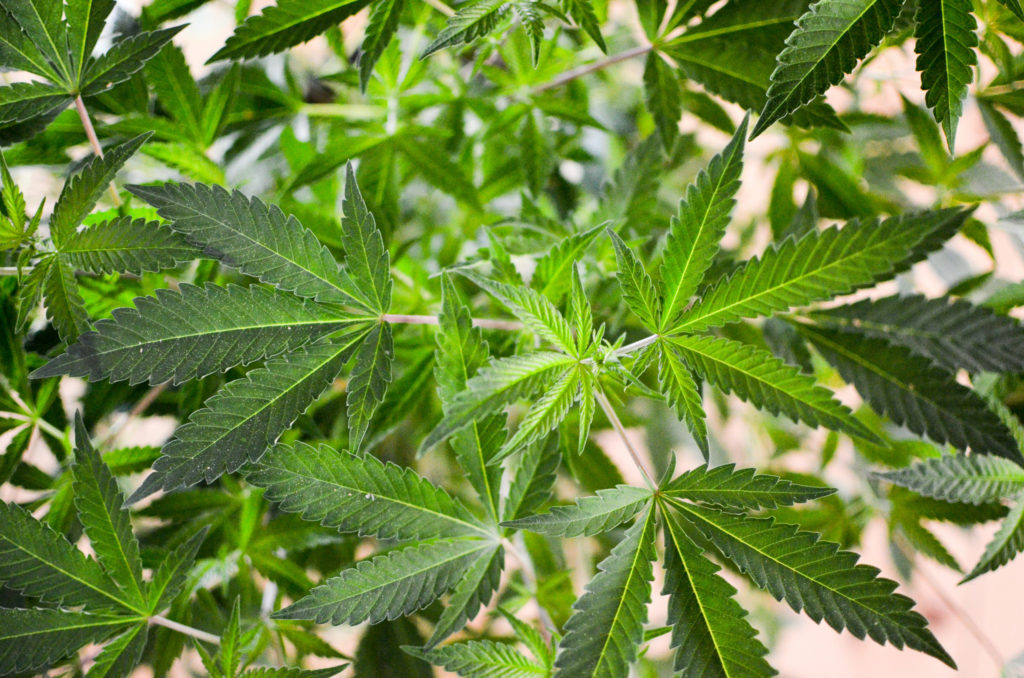Marijuana Moment
A U.S. Virgin Islands (USVI) senator has filed a pair of bills to legalize marijuana in the territory and facilitate expungements for people with prior cannabis convictions.
Sen. Janelle Sarauw (I) filed the legislation months after Gov. Albert Bryan Jr. (D) included a cannabis legalization revenue in a budget proposal he sent to lawmakers and indicated that he might convene a special session to enact the policy change. He’s criticized Sarauw, who is running for lieutenant governor this year, for delaying the introduction of her bill.
The senator said on Monday that counsel for the U.S. territory’s unicameral legislature completed its review of her legalization and expungement bills earlier this month, clearing the way for their filing.
“It has been a very cumbersome process to get these bills to where they are today,” she said in a press release, adding that the legalization measure was crafted in a way that’s meant to promote equity and incorporate lessons learned from legal marijuana states like Colorado, which USVI lawmakers visited for a cannabis summit this year.
May be an image of text that says ‘and micro energy providers. There 0 many provisions in this bill across various disciplines, that once implemented and enforced with fidelity, the Territory will see industry that inclusive, diverse, with uniqueness that’ exclusive the creativity of Virgin Islanders; but most importantly, safe. This bill was drafted create equal economic opportunities for our people and community that has been systematically disenfranchised. “The opening of the cannabis industry across states have made many very wealthy; we had to make sure that those opportunities were also available to our residents, and not just the affluent ones, concluded Senator Sarauw.’
“To ignore those lessons would be foolish,” Sarauw said. “As a political scientist, but most importantly as an elected representative of the people, it is my job to do the due diligence to protect the masses and the best interest of our residents by creating equity in opportunity.”
For his part, the governor has repeatedly pushed for legalization over recent years and released his own reform proposal in 2019 that stalled in the legislaure. He told voters earlier this year to call Sarauw and ask her why she’s delayed her bill introduction.
“Janelle Sarauw has been sitting on the cannabis legislation for two years, saying she has a piece of legislation,” he said last month. “We’ve waited. She hasn’t produced any legislation.”
It’s unclear whether that pressure amidst the coming election affected the senator’s decision to file the legislation. But while the legalization bill comprehensively addresses issues like industry licensing, there’s a notable lack of language that directly addresses the rules for consumers like possession limits or home cultivation policy.
Here are some of the main provisions of the legalization bill:
The legislation would create an Office of Cannabis Regulation (OCR), tasked with issuing marijuana business licenses, overseeing the industry and setting rules on issues like advertising, packaging and labeling.
There would be eight license and permit types, including for cannabis manufacturers, retailers, cultivators, micro-cultivators, testing laboratories and on-site consumption entities.
There would be caps on how many licenses OCR could grant for each of the territory’s main islands. Regulators could issue more after January 1, 2023 if they conduct a study demonstrating that the expansion is needed to meet consumer demand.
Individuals who use marijuana for sacramental purposes could apply for their own cultivation permits.
The bill lays out licensing fees and calls for a 50 cent per gram tax on cannabis cultivators who sell marijuana to other licensees.
Tax and fee revenue, which OCR would control, would go into a new cannabis fund and first be used to cover administrative costs of implementing the program, with additional dollars funding a territory testing facility, grants for micro-lending to micro-cultivators, low- and no-interest loans for social equity applicants, a job training program, substance misuse treatment and research into the medical efficacy of marijuana.
There would be a track-and-trace program for cannabis products.
There are also several equity components in the legalization bill, including prioritized application scoring for minority, women and service-injured entrepreneurs.
The legislation sets a goal of creating an industry where at least 51 percent of the businesses are owned by social and economic equity applicants, including those from areas disproportionately impacted by the drug war and distressed farmers.
It also calls on retailers to buy 10-50 percent of their cannabis product stock from social equity brands.
There would be a 100 milligram THC cap on edibles, and each serving could contain up to 10 milligrams.
Additionally, there are residency requirements for marijuana business ownership. Majority owners must reside in USVI; if there aren’t majority owners, at least 50.1 percent of the entities holding the license must be run by residents.
There are packaging and labeling restrictions, with the bill stipulating that labels must include health warnings and be designed in a way that doesn’t appeal to people under 21.
The whereas section of the bill says that “the legalization of Cannabis for adult use can alleviate social injustices experienced by persons subjected to the criminal justice system for simple possession of Cannabis.”



